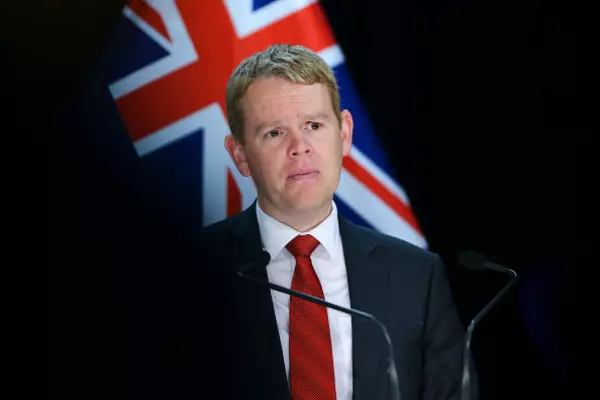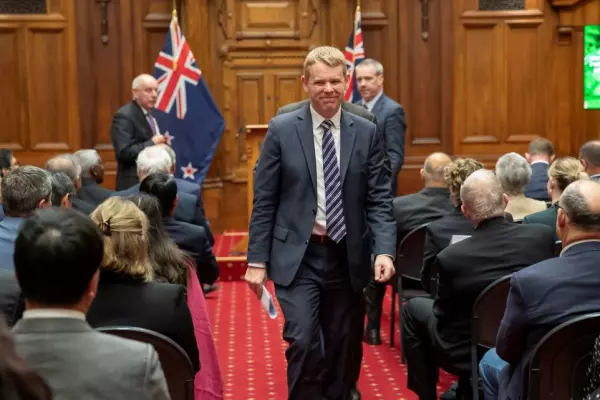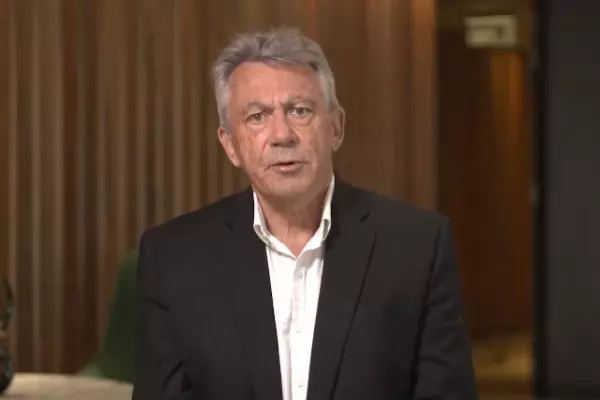Sir Keith Holyoake, New Zealand’s most successful post-war prime minister, with four election victories, famously counselled first-term MPs to ‘breathe through their noses’.
He suggested it was in their best interests to keep their heads down and their mouths shut.
During the last few months, I have witnessed many health newbies opine much, and present attention-grabbing superficial nonsense as solutions to our healthcare crisis.
But the problem is, there could soon be a catastrophe – tens of thousands of people with avoidable serious illnesses, significant loss in quality of life or early death.
Little upended healthcare
Andrew Little, an ex-trade unionist with no prior healthcare experience, six months into the job decided to completely upend healthcare and implement a half-baked, still unfinished plan in the middle of a global health crisis.
We were told that if Wellington managed everything it would sort out ‘post code’ healthcare (where one region gets better healthcare than another) and indeed the goal might be achieved, but in a very bad way.
Some want to magic up tens of thousands of new healthcare workers. But we can’t find or pay for these workers when we are facing the headwinds of poaching from other countries and waves of retirement.
Another ex-trade unionist with zero health experience, Rob Campbell, rolled out his unfinished ill thought-through plan to magic up these workers.
'Sack the bureaucrats'
Campbell forcefully argued that the answer is to sack all of the bureaucrats, that is the staff not directly delivering healthcare services, and shift the savings to hiring more frontline workers.
He also reckons the Te Whatu Ora – Health NZ is “constipated” and in need of a “laxative”, more attention-grabbing gibberish that makes no sense.
This just serves to show his total lack of understanding of healthcare.
Some of the ‘bureaucrats’ Campbell refers to are seasoned healthcare professionals with decades of experience.
When I first accidentally got into health 30-plus years ago I discovered that there was a degree in health administration.
It’s a qualification that I assumed to be completely useless, on a par with telephone cleaning, and would qualify candidates for the B Ark in Douglas Adams' Hitchhiker's Guide to the Galaxy.
The most complex field
Years later, I came to realise that health administration, as the coordination of healthcare services across primary care, specialists, communities and hospitals, is absolutely one of the most complex fields that exists in health.
It's far more complicated than orthopaedics, neurosurgery (apologies to my brain surgeon) and many other specialties.
If this was all so easy, then why are most healthcare systems around the world struggling to get it right? How can someone from banking, retail or trade unions, with no health experience, swan in and within months be confidently espousing glib solutions to the Gordian Knot of healthcare?
My suggestion to all health newcomers is to follow Keith Holyoake's advice and simply breathe, look, listen and learn for 10 years.
Thirty years ago, my real interests were applied mathematics, engineering and design, and I fell into health. The fascinating thing about health, which has held my interest ever since, is how damn complicated it is.
After all these years, I have great expertise in some areas, but I still have significant knowledge gaps into the intricate workings of certain healthcare specialties.
However, fortunately I have a good rolodex of real experts (including bureaucrats), also with decades of experience that can explain those subtle nuances.
Or more simply put, today I know enough to know what I don’t know and who I can get answers from.
We urgently need solutions
Today, we are definitely in a spot of bother with healthcare and we urgently need solutions.
Heather Simpson’s report was well-considered and drew on the expertise of those who live and breathe healthcare.
Rob Campbell and Andrew Little may well have many other skills. But when it comes to addressing a health system crisis, we need experience, not throwaway media lines about constipation.
We need to draw on, rather than completely ignore, the experience we have and look for New Zealand-appropriate solutions.
We have a huge task in front of us.
It is astounding that healthcare is not the No 1 election issue and that we are more worried about and preoccupied with Three Waters, the TVNZ-Radio NZ merger, polytech reorganisations … actually quite a long list of other issues.
And my final piece of advice is that now is definitely not a good time to get sick in New Zealand or anywhere else in the world. So, please stay healthy.
By Ian McCrae, Orion Health founder, former chief executive and now Mr Odd Job.
Rob Campbell responds:
“I am very sorry to disappoint or offend Ian McCrae, given his apparent distaste for a role I last held about 40 years ago in a union.
But I agree with quite a bit he says.
As it happens I had no input into the Pae Ora health reforms.
It seemed to me when asked to lead Te Whatu Ora that the direction and intent were right. Still does.
Some of the content is marred by being driven by officials and consultants too far from service funding and delivery.
Much more account should have been taken of the knowledge and experience of what has become known as the front line, given the battle our health service system is in.
I make no pretence to health clinical or management expertise and never have.
My focus was on establishing sound governance which is, after 40 years or so, something I do know a bit about.
Good management in any sphere of activity is critical.
Governance must lead in this. In health services, management is very complex. It is not helped by too many people and confused accountability.
So that has to be addressed.
Similarly, the management structure must allow more effective clinical and other staff, and critically the funded services, to lead and not simply implement. A range of interests, not least in IT, do very well from the past cumbersome structure.
When Te Whatu Ora really gets working it will be tougher for the least effective providers but the best will thrive.
Oh, and by the way, some of the best advice in my experience comes from the very unions that Ian does not seem to like.
They channel the views of their members very well and it’s a pity they are not listened to more.
Rob Campbell is the former chair of Te Whatu Ora.
Ian McCrae responds:
I agree the Pae Ora health reforms are definitely not something people would want to put on their CV and hats off to you for being courageous enough to take it on.
Totally agree that healthcare has to go local. But probably don’t agree with centralisation and the role of Government. Over many years unions have definitely had a positive role to play, my problem is there isn’t one for an ex CEO and now Founder, Director and Mr Odd-job.
Also we should get together one day and I can set you right about technology.



















